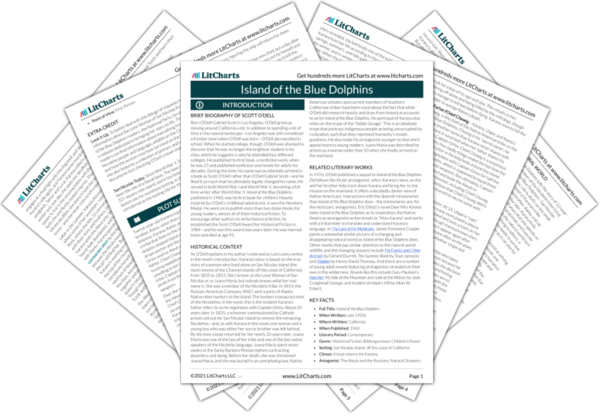Previous
Chapter 3
|
Previous
Chapter 3
|
Island of the Blue Dolphins: Chapter 4 Summary & Analysis |
Next
Chapter 5
|


Upgrade to unlock the analysis and theme tracking for all of Island of the Blue DolphinsIsland of the Blue Dolphins!
Get LitCharts A+